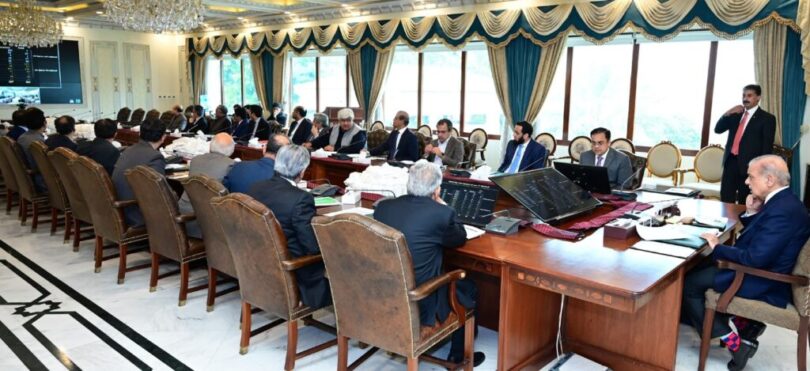Prime Minister Shehbaz Sharif Thursday chaired a high-level meeting on a single-point agenda to curb electricity theft. He directed immediate disciplinary action and stern punishment to the officers and staff involved in professional negligence and corruption causing billions of dollars in losses to the national exchequer. According to the Premier, it was the responsibility of the authorities to create a stable system by taking preventive measures and public awareness campaigns to stop electricity theft in our society. The Prime Minister stressed the formulation of a strategy to decrease line losses and the upgradation of transmission lines. He noted that power-generating companies were a burden on the national exchequer and privatization of all debt-ridden entities was a priority of the government.
Illegal electricity theft and unauthorized use of power without proper metering or payment are widespread problems in today’s Pakistan. It causes billions of rupees in financial losses for the government and relevant power producers/providers companies, contributing to power shortages, overbilling, or circular debt of the government entities. The government and power companies have adopted multiple strategies including the installation of smart meters, technical monitoring, public awareness campaigns, and legal prosecution of the offenders but all those best practices could not work effectively. The issue persists and has now turned into a grave challenge for the government and utilities companies facing default and debt payment crises. Unfortunately, the volume of illegal power theft is so massive that over 57000 cases have been caught red-handed in a single five-district zone whereas the gravity of the issue could easily be assessed in 170 districts across Pakistan including four provinces, Azad Kashmir and Gilgit Baltistan.
Historically, all efforts of the government and power-distributing companies have not succeeded in curbing electricity theft and preventing bulk losses to the national kitty throughout the past. Such a large-scale crime is not possible without internal complicity and malignancy of the WAPDA employees and staff of power-distributing companies which not only failed all strategies but complicated the problem many folds. Meanwhile, the criminal conduct of the power-distributing companies and power division further aggravated the problem wherein fiscal losses from power theft and no billing in certain regions particularly FATA were leveled to law-abiding electricity consumers in general areas along with the introduction of slab-based tariff plan which rendered this essential utility unaffordable for the masses.
Previously, the caretaker government in collaboration with the Pakistan military launched a nationwide crackdown against power theft and uncovered thousands of illegal connections across the country. During the campaign, 350 personnel of distribution companies were suspended for their bad performance or abutment. However, the problem was so grave that such a large-scale anti-theft campaign could not reduce the fiscal losses of the concerned departments. The incumbent government has decided to implement strict measures and harsh punishment for the culprits involved in such heinous crimes. As said, feeder monitors would be deployed at the feeders to gauge theft and the areas with less electricity theft would have less load-shedding. Task forces would be established at district and division levels to stop power theft and bonuses would be given to the team with good conduct and best performance. In addition, an amendment is being incorporated in section 462(O) of the Pakistan Penal Code through an ordinance to make electricity theft a cognizable offense. In fact, accountability of the government officials, and a stern and massive punishment of the culprits is the only way forward to curb power theft otherwise the crooks habitual of free-of-cost wine never give up bad practices for the sake of motivation or nationalism. As our nation successfully eliminates this curse, Pakistan will move toward good governance, fiscal regulation, and economic affluence in the future.







